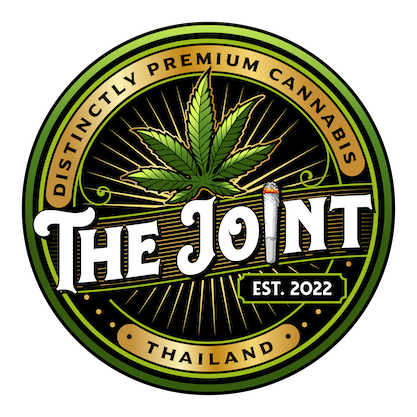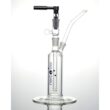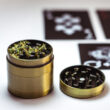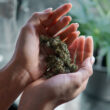If you think you may have migraine, these answers to common questions can help you further investigate this possibility with a doctor. People who cannot stop drinking should talk with a doctor about treatment for alcohol use disorder, which is a serious but treatable condition. A 2015 study suggests that the inactivity of alcohol dehydrogenase 2, an enzyme that helps break down alcohol, might contribute to hangover headaches. However, the study author also cautions that no single factor causes all hangover headaches. Alcohol-induced headaches generally resolve within 72 hours of onset, although they can and many do last for a shorter time period. While these headaches eventually do subside, it is important to talk to a medical provider about headache triggers and develop a plan to minimize them.
Consequently, it seems likely that people with migraine to some extent avoid alcohol, which would be one interpretation of our results. After using the above key terms, 1,892 articles were identified in the three databases. 511 papers were found in PubMed, 773 in Embase and 608 in Web of Science. Subsequently, 38 non-English articles, 30 animal studies, seven studies concentrating on molecular pathways to alcohol intake and 562 papers not related to our topic were removed from the remaining records. Then, 142 conference abstracts, 100 reviews, four book chapters and 42 unretrieved studies were not taken into further consideration. Finally, 22 articles 26, 27, 36, 44–62 were retrieved for further analysis.
- The medical implications of alcohol use can last long after a person stops drinking.
- Drinks containing more alcohol and congeners may worsen the chance of developing a headache.
- Anxiety occurs in addition to the typical health risks, which range from risky behaviors to weight gain, liver damage, and other physical effects.
- If you aren’t sure that alcohol is to blame for your headaches, try keeping a diary.
- A headache that sets in the next day is a symptom of a hangover.
Study characteristics
Alcohol, particularly when consumed outside of the home, may be accompanied by food that is not prepared or stored properly. This can lead to foodborne illnesses, such as food poisoning, which can trigger headache symptoms. If you can alcohol cause a headache frequently experience headaches after consuming alcohol, it might be worth considering whether the food you consumed alongside the alcoholic beverage could be a contributing factor. We asked these experts what a person who struggles with migraine would expect if they stopped drinking, and the answers were varied. Overall, physicians state that stopping drinking certain types of alcohol, like those with tannins, may lead to fewer migraine headaches.
All You Need To Know About Alcohol-Induced Headaches
Anxiety disorders and depression are two of the most commonly reported mental illnesses among people who are diagnosed with migraine. By learning how migraine and mental health impact one another and ways to manage both, you can improve your quality of life. Learn more about the relationship between migraine and mental health in this AMF webinar. Keep a record of any symptoms that occur after consuming alcohol and discuss them with your doctor. Identifying your specific food and drink triggers is a key part of any migraine prevention and treatment plan.
In other words, instead of expanding the blood vessels, higher and higher levels of alcohol constrict blood vessels, causing high blood pressure. It’s one of the reasons why excessive alcohol usage can lead to heart issues. However, it should be noted that, according to Scientific American, the vasodilator effect of alcohol reverses when you drink higher levels of alcohol. We offer a variety of treatment options for teens and adolescents, an outpatient program, and even dual diagnosis treatment for co-occurring disorders like depression and anxiety disorders. Those suffering from an immediate alcohol-induced headache will likely feel a pulsating sensation, usually on both sides of the head. They will also find that the headache increases in intensity when any physical activity is taken.
With 30 years of paying close attention to consumption and the boundaries, I have evolved to limiting high alcohol, highly tannic, and heavily processed wines. With the huge focus on organic foods and what we all eat, there should be as much attention put on what we drink. Light sensitivity is a common symptom of migraine (as is sensitivity to sounds or smells), but not everyone who has the disease will experience it.
As far as we know, there’s no actual physical swelling of the brain. But there is no doubt people feel pressure and often a throbbing sensation as a result of chemical imbalances and increased blood flow. Talk to a healthcare provider when you are considering quitting if you have a long history of heavy drinking or alcohol use disorder. Alcohol withdrawal can cause severe and sometimes life-threatening symptoms. Poor or limited sleep causes grogginess and irritability, which can lead to feelings of depression or anxiety. Although alcohol makes you fall asleep faster, it interrupts your natural sleep-wake cycle (or circadian rhythm).
Can Alcoholism Cause Chronic Headaches
- These are substances that the alcohol manufacturing process produces.
- However, if the role of ADs in triggering MA and TH will be confirmed, a common trigger site should be considered.
- Meanwhile, 2020 research showed that 95% of participants experienced alcohol-induced headaches.
- “Yesterday the pain was unbearable and required hospitalization.
- Therefore, there was insufficient data to analyze the relationship between alcohol and aura, and the data that does exist is inconsistent 65, 86.
We know that if we treat the underlying cause, we can make great strides in helping migraine patients live pain-free. While this is not necessarily true for everyone, it’s true for so many people that a trend toward abstinence developed among migraine-sufferers. In fact, one Dutch study found that 25% of people who suffered from migraines had stopped drinking because it was either an actual or potential trigger. While there are home remedies and treatments for a hangover headache, prevention is always better than trying to cure it. However, if you can’t avoid alcohol, remember to drink in moderation.
Migraines
BB, PN, MS1, MWP collected the data and prepared a manuscript. MWP, MW, MS2 and SB revised the final version of the manuscript. All authors have read and agreed to the published version of the manuscript.. Dr. Michael Yang is a board-certified neurologist and headache specialist at the Gundersen Health System in Wisconsin. He is an active member of the American Headache Society and the American Academy of Neurology.
Dr. Yang is currently actively involved in several research projects on migraine. No content on this site, regardless of date, should ever be used as a substitute for direct medical advice from your doctor or other qualified clinician. We recommend exploring complementary treatments such as biofeedback, green light therapy and aerobic exercise. Learn how these common therapies can help you manage migraine. Whether you have lived with migraine for a few months or a few decades, you know migraine can be a challenging experience. You should continue to seek proper medical attention and access information to help alleviate the burden.
ways to curb your drinking
According to Aurora, however, alcohol consumption isn’t just a question of what’s considered a safe amount. It also depends on whether or not you’re likely to develop headaches. “Some patients with migraine are particularly susceptible to dehydration,” she says. Due to the inclusion of many study designs, the risk of bias was evaluated using tools adjusted to the type of study. The Joanna Briggs Institute (JBI) critical appraisal tools were used for cross-sectional, cohort and case control studies 63. According to the appropriate JBI checklist, cross-sectional studies had to be conducted on the basis of eight questions, case-controls had ten questions, while cohort studies contained 11 questions.
A 5-ounce glass of wine (or 12 ounces of beer or a 1.5-fluid-ounce shot) may be OK every now and then, so long as it doesn’t bring on a headache. If it does, you’ll need to drink less or stay away from all alcohol. Making sure to drink plenty of water during and after alcohol consumption can decrease the chance of headaches. If you’re very sleepy during the day, snore or sound like you’re choking while sleeping, or regularly experience headaches you can’t explain, talk to your doctor about getting tested for OSA. Obesity hypoventilation syndrome (OHS), or Pickwickian syndrome, occurs in some people with higher body weights.
In the final step, to assess the exact number of included articles, the authors (BB, PN and MS1) read the appropriate full-text papers and confirmed their relevance to the primary objective. In cases of conflict between authors in terms of the inclusion of a particular paper, the fourth researcher (MWP) decided upon a solution to the problem following discussion. If they trigger migraines look for an alternative without alcohol. Additionally, it is important to know the alcohol content of the beverage you’re drinking. This will determine how long alcohol will be metabolized in your body and how long the effects will last. This is because blood alcohol concentrations are not the same for everyone.
For instance, alcohol byproducts called congeners have been linked to headaches. Dark-colored alcohols like red wine, brandy, and whiskey may contain more of them. As dehydration can cause headaches, staying hydrated when consuming alcohol is key.
The quality of the alcohol consumed may be a factor in whether it triggers a headache. Lower-quality wines contain molecules known as phenolic flavonoid radicals, which may interfere with serotonin, a signaling molecule in the brain involved in migraine attacks. The migraines tend to start within three hours of consuming alcohol. Sometimes, migraines don’t plague patients until the next morning, just as their blood-alcohol content level is back to normal. Many people confuse this with a regular hangover until the intensity of the migraine sets in. Red wine is the type of alcohol most often reported as a headache trigger.







